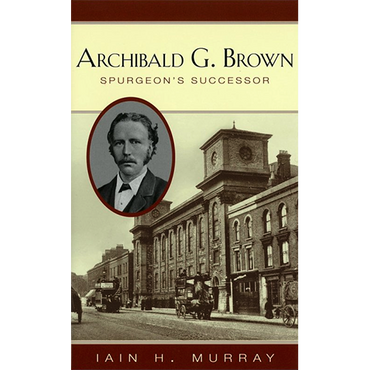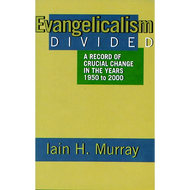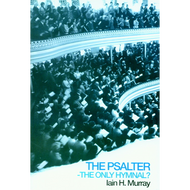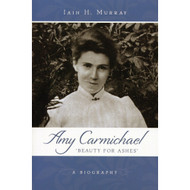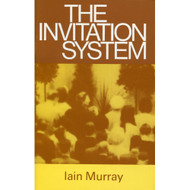Categories
Categories
Archibald G. Brown: Spurgeon's Successor by Iain H. Murray
Product Description
Archibald G. Brown Spurgeon's Successor Hardcover: 432 pages Publisher: Banner of Truth ISBN-10: 1848711395 ISBN-13: 978-1848711396
Publisher's Description
In his biography of Archibald G. Brown, Iain Murray writes that instead of following his father to wealth in commerce and banking, Archibald Brown built a church to hold 3,000 in the East End of London while still in his twenties. Five thousand eight hundred were to join in 30 years. Almost simultaneously he led mission work among the poor, being described by the Daily Telegraph newspaper as possessing ‘a larger practical acquaintance with the homes, and the social horrors of the foulest corners of the East of London than anyone who could well be cited.’
When his health demanded a change, AGB (as he was popularly known) served other churches, including the Metropolitan Tabernacle, London, before a last decade of extensive travel with a temporary home in South Africa. After Spurgeon died (1892), Brown was a foremost leader among those for whom Christian preaching still meant ‘love, blood, and power’. It was written of him in 1913 ‘No man of modern times, of his school of thought, can command larger audiences.’ Few spoke with more sympathy and tenderness, characteristics deepened by bereavements and the heart-felt realization that, ‘We have to perform our service in the same Spirit in which our Lord worked, and our measure of power will be according to the measure of Christ’s Spirit which we possess.’
After days of revival, AGB lived to see adverse changes in the churches. What a majority accepted as progress, he saw as apostasy, and as the Christian faith waned in Britain, his life came to be remembered by few. But truth that comes from Scripture cannot die. Those who read him today will find him alive, and his life opens a window on New Testament Christianity.
About the Author
Mr. Brown was trained at Spurgeon's College, pastored another large church in London and showed a heart very similar to that of Charles Spurgeon's. The two men were close friends until Spurgeon's death and Brown even pastored Spurgeon's old church for a while. However, Mr. Brown did much more than that. He was not just a Spurgeon imitator though that would be quite an accomplishment on its own. In particular, after "retiring" in his 60's, he traveled for years throughout Africa and Australia preaching in churches to the blessing of many. His name in that day was almost as well-known as Spurgeon's and perhaps one reason that his name is relatively unknown today is that he didn't write as much and he didn't found as many institutions. If you enjoy reading about Spurgeon, I will be quite surprised if you do not enjoy this biography.
I was especially challenged by Brown's zeal and by his reliance on the spirit of God. I find it helpful to read biographies of people who are farther along than I am in the Christian life because they remind me to not be complacent but to keep pressing forward.
 Loading... Please wait...
Loading... Please wait... 
